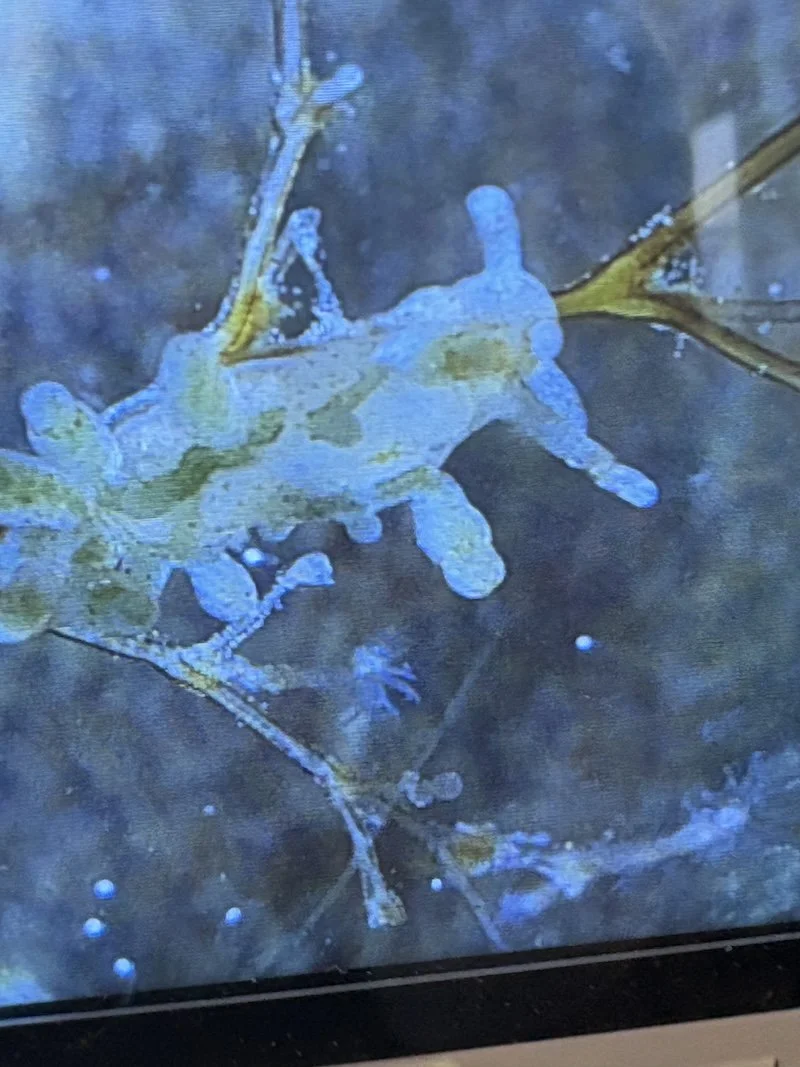Photo: Atlantic Puffins, Michael Schmitt/Audubon Photography Awards
Deborah Hammer, Autism and Low Incidence Specialist, Arlington County Schools, Winner of NVBA’s 2025 Scholarship
Have you ever felt nostalgic for the fun you had as a child at summer camp and wished to re-experience it -- the arts and crafts, music, hiking, meeting new friends, and the sense of wonder at having new adventures? I have, and thanks to the generosity of NVBA, I got to make that wish come true. I attended Sharing Nature: An Educator’s Week at Hog Island Audubon Camp in Breman, ME. The camp, which is run by the National Audubon Society under the Seabird Institute, has several special sessions open to anyone, including children and families, who are interested in birds and nature.
The camp experience began when I arrived in Bremen. I joined a group of enthusiastic campers, where we were met by some of our counselors and took a short boat ride to Hog Island. We were assigned our cabins, all of which are well over a century old, and began decorating our name tags. After some icebreaker activities, where I met my fellow campers from across the country, we sat down for the first of our many gourmet, locally sourced meals. While dining, we had a chance to get to know each other better. Although we came from diverse educational backgrounds - public schools, state parks, nature centers, preschool up to university – we all shared a life-long love of learning and playing in nature.
Morning activities started early, with most campers rising at dawn to birdwatch, meditate, or write in a nature journal, either alone or in groups with counselors. Most of the sessions were designed with an eye on strategies we could bring back to our students. For example, we learned a mindfulness strategy that utilized breathing like different animals and another that utilized different senses.
After breakfast, we often had a choice of classes we could take, such as cyanotype printing, nature photography, seaweed pressing, or poetry. We also received instruction on becoming better birders, the history and ecology of Hog Island, and tips for translating our instruction into practice.
A view of intertidal creatures through the microscope. Photo: Deborah Hammer
One of my favorite activities was examining the intertidal zone for the many creatures who hide and thrive there. Some, like sculpins, lobsters, sea squirts, sponges, and crabs, we could examine right on the beach. Others, we took back to the lab to view under a microscope, including fetal horseshoe crabs, tunicates, tardigrades, baby mussels and flatworms. The lab was an adventure in itself. It had a vast book and specimen collection, including a passenger pigeon.
A highlight for everyone was a visit from Dr. Steve Kress, founder of Project Puffin, who told us about the challenges he faced when bringing Atlantic Puffins back to their ancient home along coastal Maine. He has since replicated his techniques all around the world to help others preserve or reestablish vulnerable species of birds. The following day, we took a boat ride to Easter Egg Rock where we could see puffins, eiders, guillemots, and other birds.
Atlantic Puffin, Kevin VandeVusse/Audubon Photography Awards
Hikes throughout the week helped us learn about other aspects of coastal Maine, including the geology, flora, and mycology. We had a chance to lie on the soft moss and take in the scent of spruce and ocean, while terns, Laughing Gulls, and American Crows called all around us.
One memorable night involved music from a band comprised of staff members and volunteers who played for us while we learned contra dancing. On the last night, we were treated to a feast with a festive dessert of Cream Puffin, the only type of puffin that humans should eat! Like campers worldwide, we also spent the last night singing, exchanging contact information, and bemoaning that we had to return to the “real” world in the morning.
I’m looking forward to sharing all that I’ve learned with the educators that I support in Arlington Public Schools and applying new strategies with my students.
I would highly recommend that my fellow educators apply for the chance to experience Hog Island Audubon Camp next summer.



